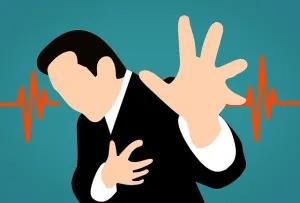Managing Anger and Stress
He was my uncle. He lived to be 83 years old. But, ten years before his death, he suffered a myocardial infarction that ultimately killed him. He had a hair-trigger temper and was quickly given to angry outbursts and expressions of outrage.
When the unexpected occurs, the stress our bodies are hit with is severe in impact. Divorces, job loss, living through an earthquake, hurricane, war, and many other experiences, even if they occur once in a lifetime, exact a heavy toll on our bodies and health.
Some of us get angry at minor things. Examples of minor things are:
- A traffic jam, parking ticked,
- the husband or wife forgetting to make a purchase,
- failing to stop at the grocery store,
- and many other minor life occurrences become the reason to explode into anger as though these things had some fundamental importance.
These explosions exact a toll on our bodies. That toll accumulates, along with all the other stressors. Then, one day, the “toll collector” comes by to collect, and that is when we have that cardiac arrest, arrhythmia, infarction, stroke, and death. Everyone is shocked because they did not count these large and small, and minor disasters as anything of consequence. We do not count these things with the person who has died, and, worst of all. We do not keep count of our disasters and their impact.
An excellent book on how stress and anger affect us is by Bessel van der Kolk, “The Body Keeps the Score.”
People must find ways to not explode into anger. It is also essential to reduce stress. People can use strategies to keep healthy: exercise, eat right, and not smoke. Meditation and deep relaxation muscle relaxation are beneficial.
A new US study suggests that learning to manage your anger might save your life. The study is the work of researchers at Yale University School of Medicine in New Haven, the Veterans Affairs Connecticut Healthcare System in West Haven, Connecticut, and at the University of Pittsburgh, Cardiovascular Institute, Pittsburgh, Pennsylvania, and is published in the March 3rd issue of the Journal of the American College of Cardiology.
Dr. Rachel Lampert, associate professor at Yale University School of Medicine, reported that the study was critical because: “We are understanding how anger and other types of mental stress can trigger potentially lethal ventricular arrhythmias, especially among patients with structural heart abnormalities.”
Sudden cardiac arrest is when the heart unexpectedly and suddenly stops beating, causing blood to stop flowing to the brain and other vital organs.
According to the National Heart, Lung, and Blood Institute (NHLBI), 250,000 and 450,000 Americans have a sudden cardiac arrest annually. It occurs most often in people in their mid-thirties to mid-forties and affects men twice as often as women.
Your comments are encouraged. Please send them to:
email address:
Allan N. Schwartz, PhD.

